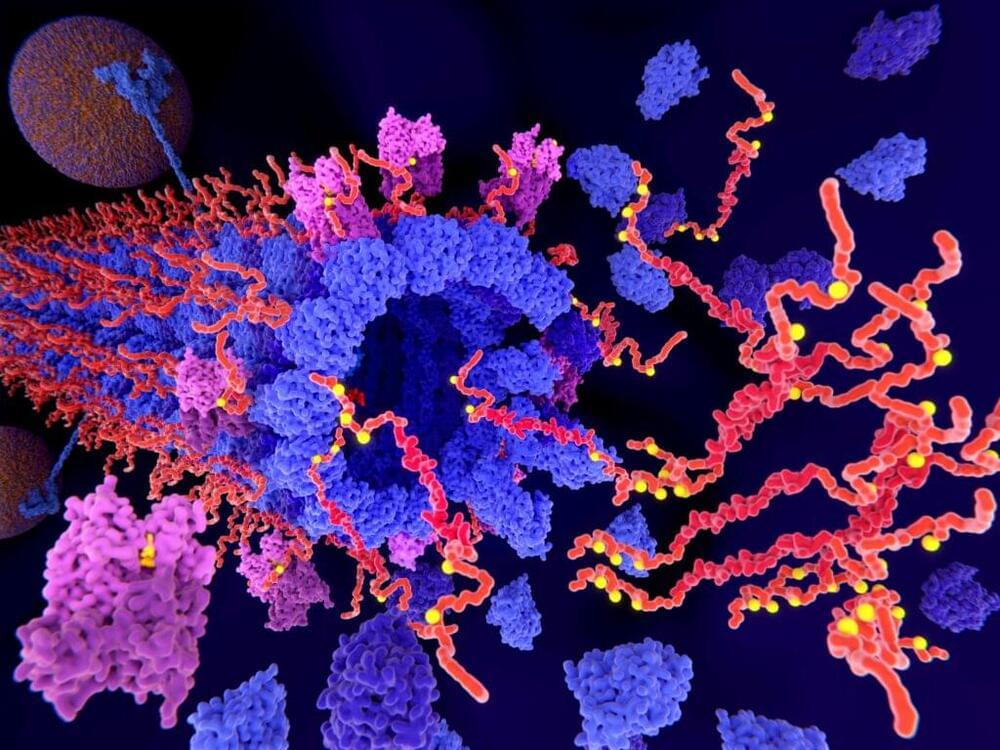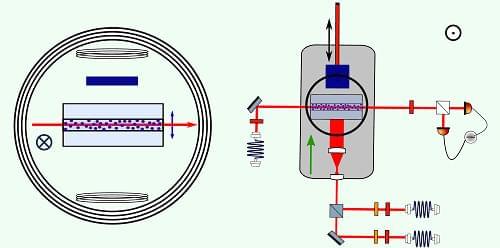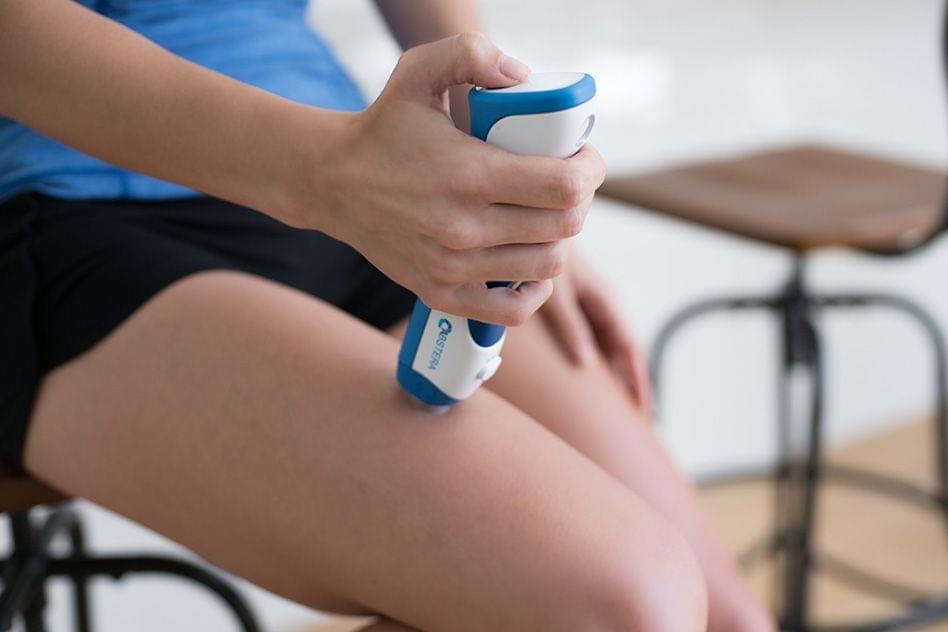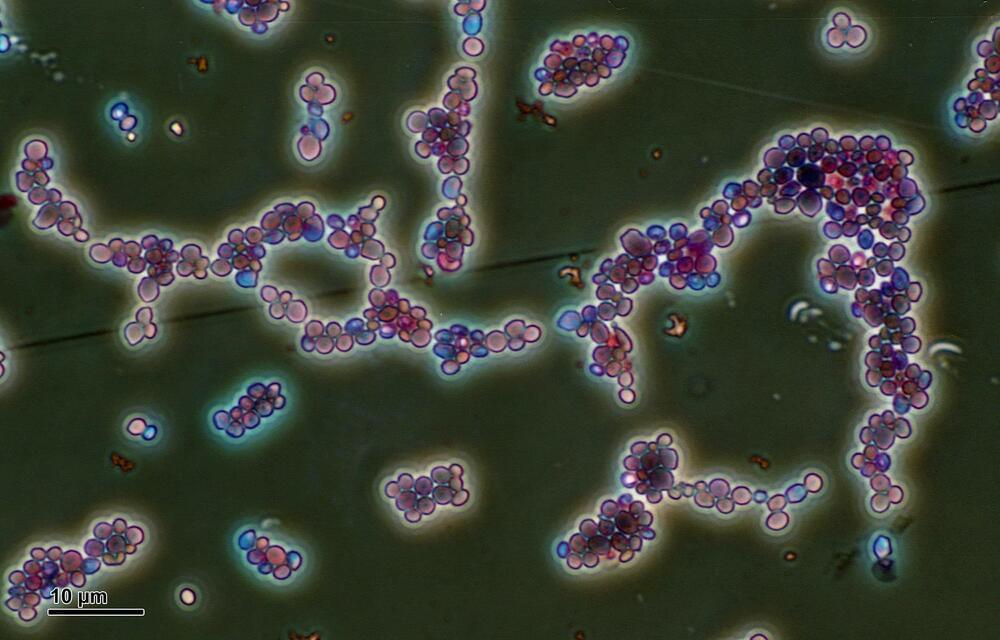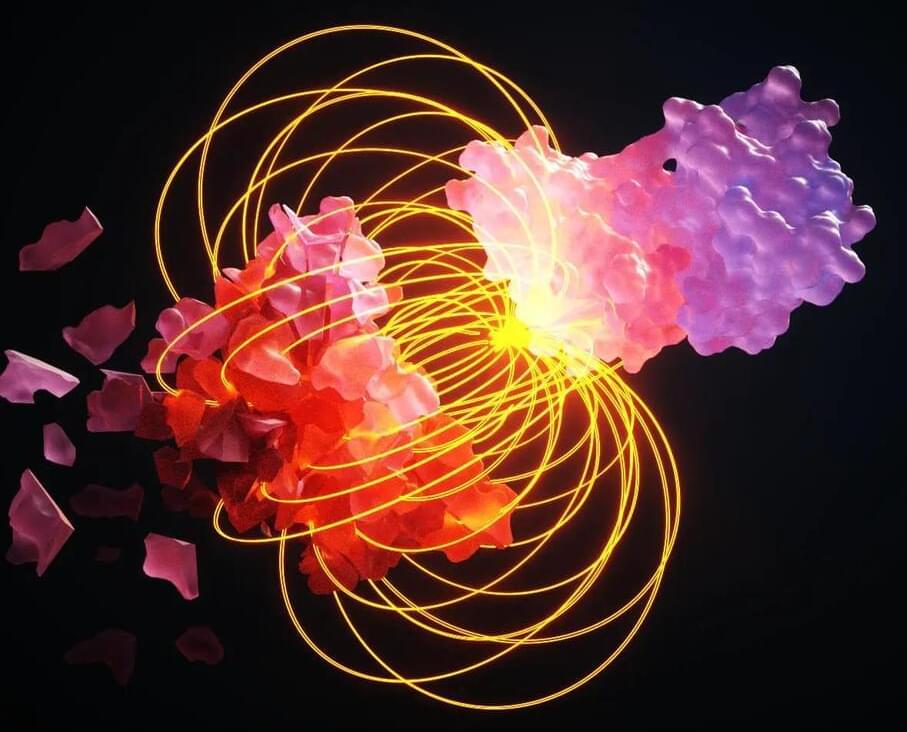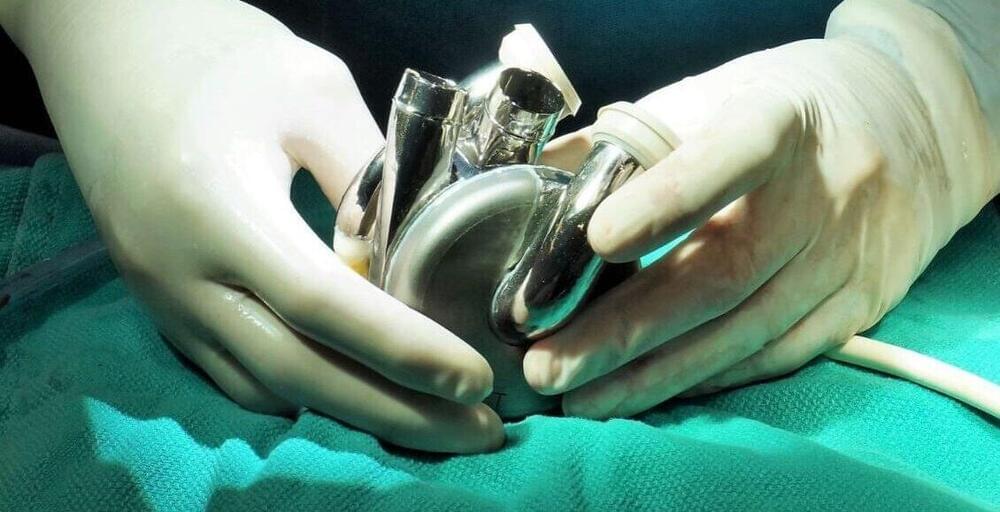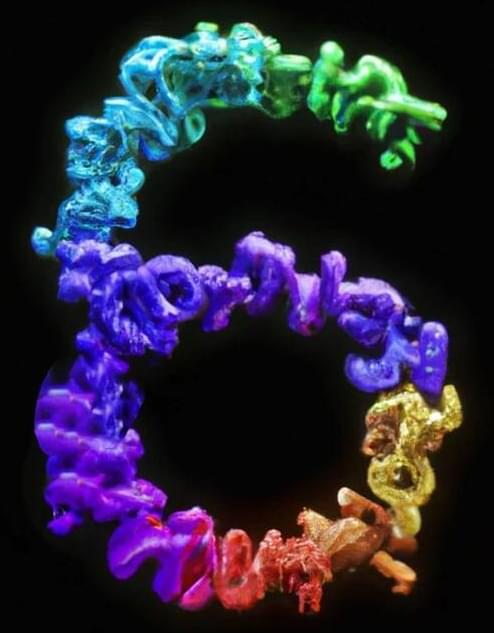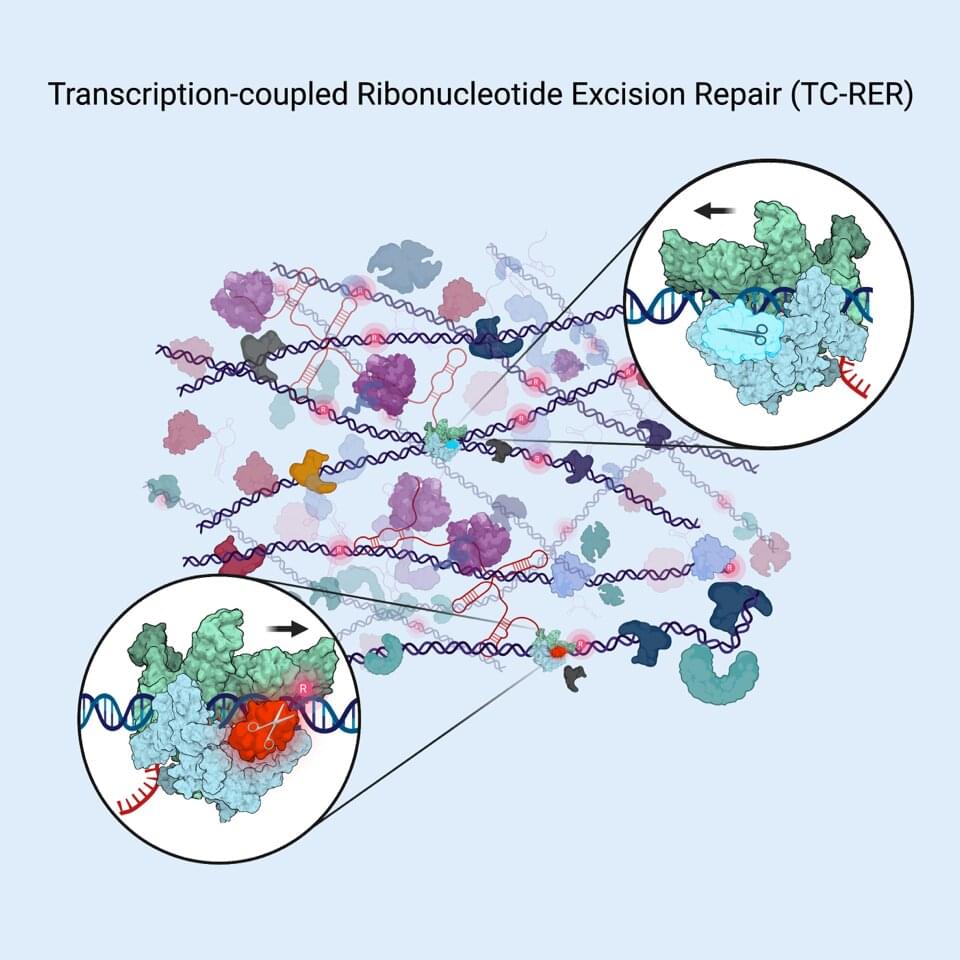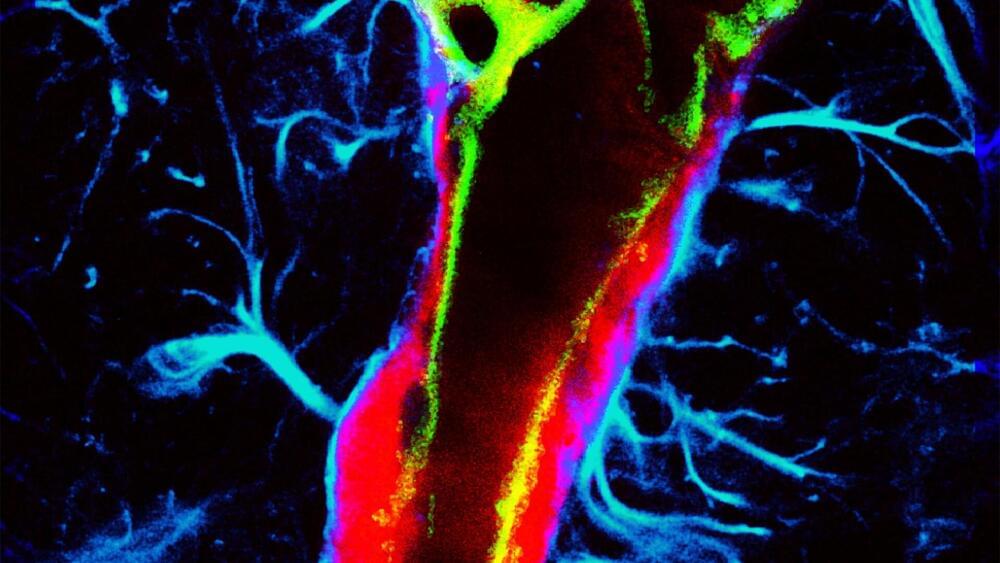Archive for the ‘biotech/medical’ category: Page 610
May 18, 2023
Quantum Boost for Magnetic Induction Tomography
Posted by Saúl Morales Rodriguéz in categories: biotech/medical, quantum physics
Quantum effects improve the performance of magnetic induction tomography—an imaging technique that has promising medical applications.
May 17, 2023
Startup’s needle-free drug injector gets commercialization deal
Posted by Quinn Sena in category: biotech/medical
😗 year 2017.
Certain treatments for patients suffering from chronic diseases, such as inflammatory bowel diseases, require multiple intravenous or subcutaneous injections of specific drugs. Because of the pain and anxiety associated with needles, some patients stop adhering to these treatments.
MIT spinout Portal Instruments has now landed a commercialization deal for a smart, needle-free injection device that could reduce the pain and anxiety associated with needle injections, shorten administration time, and improve patient adherence.
Continue reading “Startup’s needle-free drug injector gets commercialization deal” »
May 17, 2023
Nanozyme Designed to Treat Yeast Infections
Posted by Shubham Ghosh Roy in category: biotech/medical
Researchers develop cutting-edge therapy that targets Candida albicans while preserving vaginal microbiota | Drug Discovery And Development.
May 17, 2023
Revolutionizing Protein Design — Engineering a Perfect Molecular Match
Posted by Paul Battista in categories: biotech/medical, engineering
EPFL researchers have created novel protein binders that can seamlessly attach to important targets, including the spike protein of SARS-CoV-2.
Severe acute respiratory syndrome coronavirus 2 (SARS-CoV-2) is the official name of the virus strain that causes coronavirus disease (COVID-19). Previous to this name being adopted, it was commonly referred to as the 2019 novel coronavirus (2019-nCoV), the Wuhan coronavirus, or the Wuhan virus.
May 17, 2023
External heart controller development to improve patient comfort
Posted by Paul Battista in category: biotech/medical
Vital funding supports’s exciting and lifechanging work on Total Artificial Heart for the first in human early feasibility studies.
May 17, 2023
Does SIRT6 hold the key to human longevity?
Posted by Paul Battista in categories: biotech/medical, life extension
Last week, US-Israeli startup SIRTLab announced the appointment of leading geroscience researcher Nir Barzilai as its Chief Medical Adviser. The company is focused on the development of therapeutics that boost levels of a key protein called sirtuin 6 (SIRT6), which is heavily implicated in longevity.
Sirtuins are a group of proteins found in all living organisms, including humans, that play a vital role in regulating various cellular processes. There are seven different types of sirtuins, numbered from SIRT1 to SIRT7, each with its own unique functions. In recent years, SIRT6 has gained particular attention for its potential role in promoting healthy aging, and SIRTLab has put the protein at the center of its work.
Longevity. Technology: The SIRT6 protein has been shown to regulate several critical cellular pathways, including glucose metabolism, DNA repair and inflammation – all of which play key roles in aging and longevity. One of the world’s leading authorities on SIRT6 is SIRTLab co-founder and Bar-Ilan University professor Haim Cohen, whose research is behind the company’s work to develop therapeutics with longevity-boosting potential. To learn more about SIRTLab’s longevity-first approach, we spoke to its co-founder and CEO Boaz Misholi.
May 17, 2023
Researchers reveal DNA repair mechanism
Posted by Paul Battista in categories: biotech/medical, genetics, health
A new study adds to an emerging, radically new picture of how bacterial cells continually repair faulty sections of their DNA.
Published online May 16 in the journal Cell, the report describes the molecular mechanism behind a DNA repair pathway that counters the mistaken inclusion of a certain type of molecular building block, ribonucleotides, into genetic codes. Such mistakes are frequent in code-copying process in bacteria and other organisms. Given that ribonucleotide misincorporation can result in detrimental DNA code changes (mutations) and DNA breaks, all organisms have evolved to have a DNA repair pathway called ribonucleotide excision repair (RER) that quickly fixes such errors.
Last year a team led by Evgeny Nudler, Ph.D., the Julie Wilson Anderson Professor in the Department of Biochemistry and Molecular Pharmacology at NYU Langone Health, published two analyses of DNA repair in living E. coli cells. They found that most of the repair of certain types of DNA damage (bulky lesions), such as those caused by UV irradiation, can occur because damaged code sections have first been identified by a protein machine called RNA polymerase. RNA polymerase motors down the DNA chain, reading the code of DNA “letters” as it transcribes instructions into RNA molecules, which then direct protein building.
May 16, 2023
Insight into brain’s waste clearing system may shed light on brain diseases
Posted by Shubham Ghosh Roy in categories: biotech/medical, engineering, neuroscience
Like the lymphatic system in the body, the glymphatic system in the brain clears metabolic waste and distributes nutrients and other important compounds. Impairments in this system may contribute to brain diseases, such as neurodegenerative diseases and stroke.
A team of researchers in the McKelvey School of Engineering at Washington University in St. Louis has found a non-invasive and non-pharmaceutical method to influence glymphatic transport using focused ultrasound, opening the opportunity to use the method to further study brain diseases and brain function. Results of the work are published in the Proceedings of the National Academy of Sciences on May 15.
Hong Chen, associate professor of biomedical engineering in McKelvey Engineering and of neurological surgery in the School of Medicine, and her team, including Dezhuang (Summer) Ye, a postdoctoral research associate, and Si (Stacie) Chen, a former postdoctoral research associate, found the first direct evidence that focused ultrasound, combined with circulating microbubbles—a technique they call FUSMB—could mechanically enhance glymphatic transport in the mouse brain.
May 16, 2023
‘Keep them on the phone, keep it on speaker’: Expert on AI phone scam scare | NewsNation Prime
Posted by Raphael Ramos in categories: biotech/medical, mobile phones, robotics/AI

Scammers are now cloning people’s voices and using it to scam people.
So just hearing them over the phone may not be enough to their identity.
